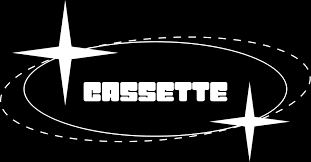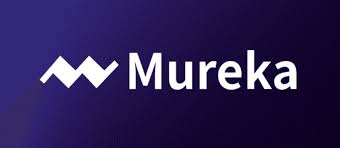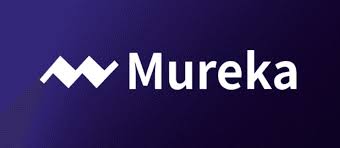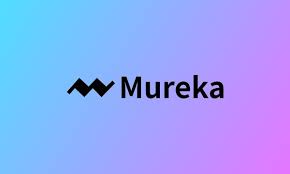If you’re a music producer looking to add AI-generated stems, beats, or soundbeds to your workflow, chances are you’ve heard of Mureka AI.
But here's the catch: like any generative tool, the quality of Mureka’s output depends on how you prompt it.
That’s why this post dives deep into the best Mureka prompts for producers—covering everything from genre-specific templates to client-ready soundtrack starters.
Whether you're producing for YouTube creators, ad campaigns, podcasts, or indie games, these tested prompt structures will help you unlock the full creative power of Mureka AI.
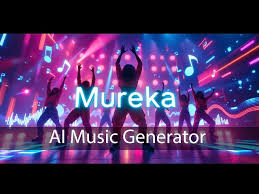
Why Prompt Engineering Matters in Mureka AI
Mureka generates music based on natural language descriptions. But vague prompts like “happy music” won’t give you precision. The best Mureka users provide four things in every prompt:
Genre or style
Instrumentation or sound palette
Mood or emotional tone
Tempo or structure (optional but powerful)
For example:
“Slow ambient piano with cinematic textures, in 6/8 time, emotional and moody”
…will give you better results than just saying “emotional piano.”
Now let’s dive into curated prompts you can plug into Mureka right now.
Best Mureka Prompts by Genre
?? Lo-Fi & Chillhop
“Lo-fi beat with jazzy Rhodes keys, soft vinyl crackle, and swingy drums at 85 BPM”
“Rainy-day lo-fi with ambient pads, mellow bassline, and nostalgic chords”
Use for: YouTube backgrounds, study playlists, chill content
?? Cinematic / Emotional Scoring
“Cinematic strings with slow piano and atmospheric pads, emotional tone, 70 BPM”
“Dark suspense build with low brass, ticking clock percussion, and minor key progression”
Use for: Film trailers, podcast intros, game cutscenes
??? Tropical & Afrobeat Vibes
“Tropical house groove with steel drums, marimba, and four-on-the-floor kick at 110 BPM”
“Afrobeat rhythm with layered percussion, guitar riffs, and funky bassline”
Use for: Summer ads, dance content, mobile games
?? Electronic / Synthwave / EDM
“Retro synthwave with analog arpeggios, gated reverb snare, and driving bass at 120 BPM”
“Festival EDM drop with big saw synths, risers, and snare rolls, energetic vibe, 128 BPM”
Use for: Club track demos, TikTok energy, short-form content scoring
?? Ambient / Meditation / Sleep Music
“Deep ambient textures with slow-evolving pads, glass bells, and low subdrones at 60 BPM”
“Sleep music with ocean-like synths, soft white noise, and minimal melody in D major”
Use for: Wellness apps, guided meditations, spa playlists
?? Game Soundtrack-Inspired Prompts
“8-bit chip tune with bouncy melody, retro drums, and arcade loop style”
“Fantasy RPG soundtrack with harp, choir pads, and slow string swells, mystical mood”
“Fast-paced cyberpunk chase music with heavy bass synth and distorted arps at 135 BPM”
Use for: Indie games, YouTube game reviews, background scoring
??? Hip-Hop & Trap Instrumentals
“Dark trap beat with 808s, ambient pads, and plucky synths in minor scale, 140 BPM”
“Boom bap hip-hop with dusty piano loop, jazz samples, and tight snares at 92 BPM”
Use for: Rap vocal demos, beat packs, artist collabs
Smart Prompt Tricks Producers Use
1. Add structure guidance
“Start soft, then build to a climax with strings and drums”
This tells Mureka to build tension or create dynamics—essential for trailers and podcasts.
2. Describe real-world use
“Music for a luxury brand ad with modern jazz feel and classy vibes”
This helps align mood and genre with commercial intent.
3. Specify instruments clearly
“Acoustic guitar and piano duet with subtle cello, soft and warm mood”
This helps control arrangement without needing deep theory.
4. Mention specific cultural cues
“Latin-inspired percussion with nylon guitar, salsa rhythm, and upbeat feel”
Use this when you want a culturally flavored track (though results may still be Western-tuned).
5. Use BPM or time signature
“4/4 lo-fi groove at 78 BPM with swing feel and lazy drums”
Mureka listens to tempo instructions and can adapt swing/straight feel accordingly.
Prompt Templates You Can Customize
Here are reusable structures you can adapt to your style:
?? General Prompt Template:
“[Genre/style] with [main instrument(s)] + [mood adjective], [tempo] BPM”
Example:
“Jazz-hop instrumental with saxophone lead and mellow Rhodes chords, relaxed mood, 90 BPM”
??? Artist-Type Prompt:
“Track in the style of [Artist] with [specific vibe or instrument]”
Example:
“Track in the style of ODESZA with airy pads and tribal drums, dreamy and emotional”
?? Sample Pack Prompt:
“Short loop with [instrument] in [key], meant for remixing or sampling”
Example:
“Loop with distorted electric piano in C minor, lo-fi vibe, swing rhythm, 85 BPM”
Pro Tip: Use Prompts + Post-Production for Best Results
While Mureka creates great initial output, producers often take it to the next level by:
Editing stems in their DAW (Ableton, Logic, FL Studio, etc.)
Layering live instruments or vocals
Adding FX, automations, or dynamic changes
Re-arranging song structure for narrative flow
Think of Mureka as your creative assistant—it gets you 70% there, but you add the magic.
Conclusion: Best Mureka Prompts for Producers
If you’re a producer in 2025, Mureka AI can supercharge your workflow—but only if you know how to speak its language.
By using smart, structured prompts that describe genre, mood, instrumentation, and tempo, you can generate high-quality loops, beds, and arrangements that fit your project’s needs.
Whether you’re scoring a mobile game, building a podcast intro, or crafting the skeleton of your next beat pack, these prompt strategies will help you get more out of Mureka—with less guesswork.
So next time you open Mureka, don’t just type “hip-hop beat.”
Try something like:
“Grimy boom bap with layered vinyl crackle, jazz chords, and hard-hitting snare at 90 BPM in G minor”
The results will speak (or sing) for themselves.
FAQs: Best Mureka Prompts for Producers
Can Mureka prompts include multiple genres?
Yes. You can request genre fusions like “l(fā)o-fi meets trap” or “classical-electronic hybrid.”
How long should a Mureka prompt be?
1–2 detailed sentences work best. Avoid being too vague.
Can I use artist names in prompts?
Yes, but results may be loosely inspired rather than true mimicry.
Do I need to mention tempo or key?
It’s optional but recommended for control and structure.
Can I reuse the same prompt and get different tracks?
Yes, Mureka generates a new variation each time—even with the same input.

